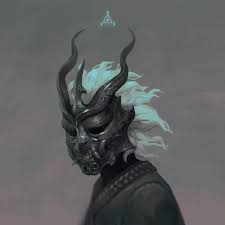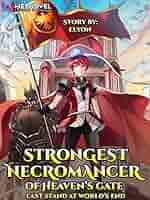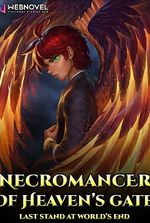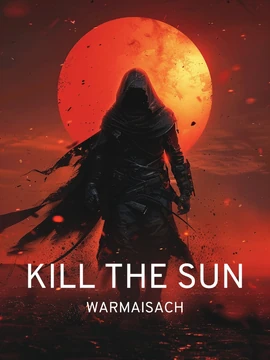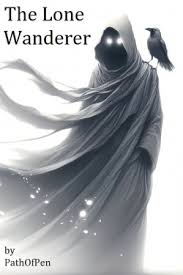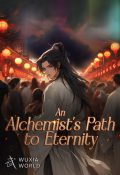The Story in 3 Sentences
Sunny begins as a forgotten orphan in a crumbling dystopia, surviving day by day under the weight of poverty and systemic cruelty until he is infected by the Nightmare Spell, a force that drags him into a realm of eldritch horrors and forgotten gods.
Through suffering and sacrifice, he becomes the Shadow Slave, bound to a dying deity and gifted with powers over darkness itself, transforming from a temple servant into a divine-ranked warrior caught between two collapsing worlds.
As he battles nightmarish entities and the fanatical War God’s followers, Sunny grapples with his own unraveling identity, the cost of power, and the fragile hope of redemption in a reality that offers no easy answers.
Why It Stands Out
1. A Power System That Bleeds
Shadow Slave reinvents fantasy mechanics by making every ability a double-edged sword—strengths come with built-in flaws, turning combat into a psychological chess match. Sunny doesn’t win through brute force but through cunning, adaptation, and understanding the vulnerabilities of both himself and his enemies. This system keeps every fight unpredictable, where even the most powerful can fall to a single miscalculation. It’s not about who’s stronger, but who understands the cost better.
2. The Soul Behind the Shadow
At its heart, this is a story about a boy who was never given love, only survival, learning what it means to be human in a world designed to strip him of it. Sunny’s evolution from a bitter, isolated outcast to someone capable of trust, sacrifice, and even leadership is rendered with painful authenticity. The novel doesn’t shy away from his darkness—his manipulation, coldness, and moments of cruelty—but frames them as scars, not sins. This isn’t a clean redemption arc; it’s a slow, messy reclamation of self.
3. Dystopia as a Mirror
The world of Shadow Slave isn’t just a backdrop—it’s a living indictment of oppression, class hierarchy, and the dehumanization of the powerless. Sunny’s status as a temple slave isn’t symbolic; it’s systemic, reflecting real-world struggles of marginalization and resistance. The novel uses its grim setting to ask hard questions: Who gets to wield power? Who is erased to maintain order? And can someone born in chains ever truly be free? These themes elevate it beyond escapism into something that lingers, challenges, and resonates.
Characters That Leave a Mark
There’s Sunny — a boy forged in silence and suffering, whose rise from slave to shadow-wielder never erases the wounds that shaped him. His power doesn’t save him from loneliness; it deepens it. Yet within that isolation, he finds moments of connection that feel earned, fragile, and profoundly human.
You’ll meet Nemphis, who wears rivalry like armor but carries guilt like a ghost. He’s not just a foil to Sunny—he’s a reflection of what Sunny could become if he fully embraced vengeance. Their clashes are as much about ideology as they are about strength, and his icy precision hides a mind constantly calculating redemption.
Then there’s Cassie, not a helpless victim, but a blind seer whose lack of sight grants her unnerving clarity. She doesn’t offer comfort; she offers truth, often harsh, always necessary. Her presence cuts through deception, including Sunny’s own, making her one of the few who sees him not as a weapon or a savior, but as a person.
And Effie? They’re the one who dances between chaos and loyalty, masking a razor-sharp intellect behind charm and mischief. They refuse to be boxed in—neither sidekick nor villain, neither friend nor foe—but remain fiercely devoted in their own unpredictable way. Effie embodies the novel’s core theme: people are not singular things, and contradictions don’t cancel out truth.
The Flaws Fans Debate
Some readers find Sunny’s emotional detachment and manipulative tendencies alienating, especially in early arcs. While others praise this as a realistic portrayal of trauma, a vocal segment feels it borders on nihilism, making it hard to root for him during morally gray decisions.
The novel’s pacing is a point of contention—its sprawling length over 2,500 chapters means certain arcs drag, with filler-heavy sections or repetitive dream sequences that test reader patience. Fans acknowledge the payoff but admit the journey isn’t always smooth.
Translation quality has drawn criticism, particularly in earlier chapters, where awkward phrasing or inconsistent terminology can disrupt immersion. Though later updates improve clarity, the barrier remains for some, especially newcomers.
Must-Experience Arcs
Ch. 1–50: The First Nightmare - Sunny’s descent into the nightmare realm begins with visceral horror and raw survival instinct. This arc establishes the tone, rules, and emotional core of the series, showing his transformation from powerless slave to the chosen vessel of the Shadow God. The claustrophobic dread and sudden bursts of power make it a masterclass in tension.**
Ch. 300–400: The Forgotten Shore - A turning point where Sunny faces existential threats and confronts Nemphis in a battle that transcends physical strength. This arc reveals hidden truths about the Shadow God, Sunny’s ascension, and the cost of godhood. Fans regard it as the moment the story shifts from personal survival to cosmic consequence.**
Ch. 1000–1200: The Second Nightmare - A deep dive into psychological torment and identity fracture. Sunny is forced to relive his worst memories and face distorted versions of himself, blurring the line between reality and illusion. This arc is celebrated for its emotional weight and philosophical depth, asking what remains when everything you are is questioned.**
Killer Quotes
“The gods were dead and yet they listened.”
“Your treachery knows no balance.”
“Identity is both armor and wound, chosen anew each day.”
“Redemption isn’t a singular event; it’s a series of small decisions.”
Cultural Impact
Shadow Slave has amassed a global following, with active fan communities on Reddit, Discord, and WebNovel forums spanning over 10 countries, where readers dissect lore, power mechanics, and character psychology with near-academic intensity.
The phrase “a thrilling dark fantasy with soul” has become a recurring tagline in fan discussions, often used to describe stories that blend action with emotional depth—now shorthand for a subgenre standard.
Fan art frequently centers on Sunny’s duality—half in shadow, half in light—symbolizing his internal struggle, and has been widely shared across platforms like Instagram and Pixiv, contributing to the novel’s visual identity.
The concept of “flawed powers” has influenced newer web novels, with authors citing Shadow Slave as inspiration for systems where strength demands sacrifice, moving away from overpowered protagonists.
Discussions about the novel often pivot to real-world parallels—class struggle, trauma response, and systemic oppression—making it a frequent subject in literary analysis threads among web fiction enthusiasts.
Final Verdict
Start Here If You Want:
Dark fantasy that doesn’t flinch from psychological and societal darkness
A protagonist whose growth is earned through pain, not convenience
A world where power has price, and every victory leaves scars
Study If You Love:
Coming-of-age narratives that reject simplicity and embrace moral ambiguity
Themes of identity fluidity and the long road to redemption
Worldbuilding that functions as social commentary, not just backdrop
Avoid If You Prefer:
Rapid pacing or episodic, low-stakes storytelling
Characters who are purely heroic or villains who are purely evil
Short, self-contained stories with minimal translation or structural complexity
